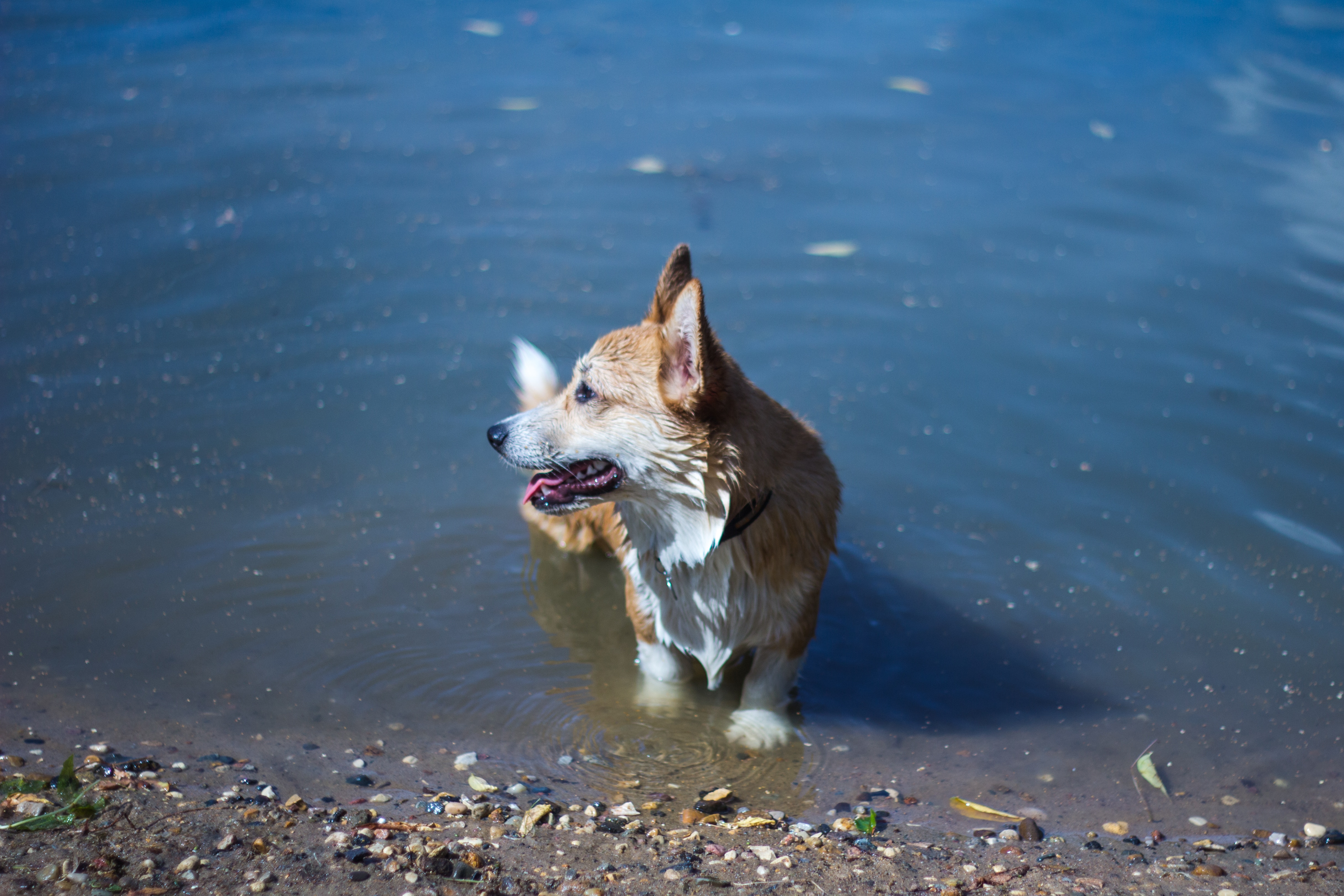The foundation should be firm.
This speaks directly to obedience training. Your dog should be reliable with certain commands so that you can protect his safety when in and around water, especially if your pooch will be off the leash. The “come” and “leave it” commands are essential. Your dog should be able to handle adhering to these commands regardless of the distractions around him, but it always helps to have a reward, such as a favorite treat, just in case.
Make sure your dog is healthy.
Water exercises are generally great for a full body, low-impact workout for dogs for all ages. But keep an eye on the duration of exercise and make sure to have fresh bottled water for your dog to stay hydrated. And, of course, know your dog’s limits when it comes to physical exercise. Take breaks as necessary, even if your dog doesn’t want to.
You should be up to date on your dog’s overall health and vaccinations. When you’re outdoors, your dog is exposed to more than just water: He’s exposed to mosquitoes, which can carry disease. Water, too, can cause your dog to get sick, such as from the bacteria Letospirosis. There is a Leptospira vaccine, but it’s not in your core class of vaccinations and will be recommended by your vet based on your dog’s lifestyle and exposure risk.
Be aware of water hazards.
Blue-green algae, which can house bacteria that can lead to upper respiratory problems, affect the neurological system, or even death, is just one concern. These blooms look like green paint, pea soup, or thick foam and are more common in mid- to late summer. Avoid them! Also, be aware that there can be broken bottles people have discarded into the water, hidden branches, and other objects that can cause your dog harm.
Know pet first aid and CPR.
Of course, sometimes things happen. Be prepared instead of having to scramble. The American Red Cross has a class focused on pet CPR. You can find information at the Red Cross website at https://www.redcross.org/take-a-class/cpr/performing-cpr/pet-cpr as well as download d the award-winning Pet First Aid app. There are also many other helpful apps that are worth downloading to have in case you need to look up a specific method or have a first aid question. But you won’t always be around. Print out a pet CPR sheet and have it stored both in your vehicle and somewhere visible in your RV for anybody’s reference.
Wash your dog.
Make sure your dog is rinsed and well dried after spending time in the water, especially if their hair is longer. Moisture and humid summer temperatures are the perfect combination for skin problems and bacterial infections. You don’t want your dog to be wet for hours after a swim. Plus, washing your dog regularly upkeeps your dog’s skin and coat health – and he’ll smell a lot better, too!

